Discover Screaming in the Cloud
Screaming in the Cloud

Screaming in the Cloud
Author: Corey Quinn
Subscribed: 838Played: 47,445Subscribe
Share
© 2021 Duckbill Group, LLC
Description
Screaming in the Cloud with Corey Quinn features conversations with domain experts in the world of Cloud Computing. Topics discussed include AWS, GCP, Azure, Oracle Cloud, and the "why" behind how businesses are coming to think about the Cloud.
657 Episodes
Reverse
Corey Quinn reconnects with Keith Townsend, founder of The CTO Advisor, for a candid conversation about the massive gap between AI hype and enterprise reality. Keith shares why a biopharma company gave Microsoft Copilot a hard no, and why AI has genuinely 10x’d his personal productivity while Fortune 500 companies treat it like radioactive material. From building apps with Cursor to watching enterprises freeze in fear of being the next AI disaster in the news, Keith and Corey dig into why the tools transforming solo founders and small teams are dead on arrival in the enterprise, and what it'll actually take to bridge that gap.About Keith TownsendKeith Townsend is an enterprise technologist and founder of The Advisor Bench LLC, where he helps major IT vendors refine their go-to-market strategies through practitioner-driven insights from CIOs, CTOs, and enterprise architects. Known as “The CTO Advisor,” Keith blends deep expertise in IT infrastructure, AI, and cloud with a talent for translating complex technology into clear business strategy.With more than 20 years of experience, including roles as a systems engineer, enterprise architect, and PwC consultant, Keith has advised clients such as HPE, Google Cloud, Adobe, Intel, and AWS. His content series, 100 Days of AI and CloudEveryday.dev, provide practical, plainspoken guidance for IT leaders. A frequent speaker at VMware Explore, Interop, and Tech Field Day, Keith is a trusted voice on cloud and infrastructure transformation.Show Highlights(01:25) Life After the Futurum Group Acquisition(03:56) Building Apps You're Not Qualified to Build with Cursor(05:45)Creating an AI-Powered RSS Reader(09:01) Why AI is Great at Language But Not Intelligence(11:39) Are You Looking for Advice or Just Validation?(13:49) Why Startups Can Risk AI Disasters and AWS Can't(17:28) You Can't Outsource Responsibility(19:52) Business Users Are Scared of AI Too(23:00) LinkedIn's AI Writing Tool Misses the Point(26:42) Private AI is Starting to Look Appealing(29:00) Never Going Back to Pre-AI Development(34:27) AI for Jobs You'd Never Hire Someone to Do(39:09) Where to Find Keith and Closing ThoughtsLinksThe CTO Advisor: https://thectoadvisor.comSponsor: https://www.sumologic.com/solutions/dojo-aihttps://wiz.io/crying-out-cloud
In this episode of Screaming in the Cloud, Corey Quinn sits down with Rubrik’s GM of AI, Dev Rishi, to unpack the real story behind enterprise AI adoption, the rise of agentic systems, and why most organizations are still stuck in read-only mode. Dev breaks down how Rubrik’s Agent Rewind brings safety, observability, and resilience to AI-driven actions, solving the “Oh no, the agent deleted production data” problem before it happens. From deep learning’s evolution to the massive gap between consumer AI enthusiasm and enterprise risk posture, this conversation is a candid, insightful look at the AI future Global 2000 companies are racing toward… or cautiously tiptoeing into.Show Highlights(00:25) Understanding Rubrik and Agent Rewind(00:50) Challenges in AI and Disaster Recovery(01:27) Guest Introduction: Dev Rishi from Rubrik(01:44) The Evolution of AI in Enterprises(02:33) Starting an AI Company: The Backstory(05:10) Generative AI and Its Impact(07:15) Enterprise AI Trends and Challenges(08:56) The Future of Agentic AI(18:03) AI in Customer Support(22:03) Rubrik's Acquisition and AI Strategy(29:30) Launching Rubrik Agent Cloud(31:26) Lessons from Starting a Machine Learning Company(35:25) Conclusion and Contact InformationSponsor:Rubrik: https://www.rubrik.com/sitc
André Arko, CEO of Spinel Cooperative and longtime Bundler maintainer, joins Corey Quinn to introduce RV, a new Ruby tool that installs Ruby in one second instead of 10-40 minutes by using precompiled binaries. Inspired by Python's UV, RV aims to simplify Ruby dependency management without the complexity of older tools like RVM and rbenv. They talk about why Ruby isn't actually dead, Apple's problem with shipping a five-year-old end-of-life Ruby in macOS, and the challenges of writing dependency managers in the language they manage. André also shares how he transitioned from a struggling nonprofit model to a cooperative that charges companies for expertise, proving that open source maintainers can build sustainable businesses without relying on donations.Show Highlights:(03:50) Introducing RV(05:12) The RVM vs rbenv Wars and Why They All Break Bundler(09:00) Why Your Mac Still Shows Ruby 3.0.0 in Your Prompt(11:00) The Chef vs Puppet Philosophy Divide(16:30) Installing Ruby in One Second vs 40 Minutes(18:13) Apple’s Ancient System Ruby Problem(22:20) RV’s Incremental Approach (24:23) Is Ruby Dead? (28:44) Why RV Is Written in Rust, Not Ruby(31:10) The Bundler Problem(32:15) The Financial Reality(38:00) Spinel’s Plans to Make Money(39:23) How to Stay In Contact with AndréLinks:André Arko: https://arko.netBlue Sky: https://bsky.app/profile/indirect.ioSpinel Cooperative: https://spinel.coopSponsor: Rubrik: https://www.rubrik.com/sitc
When attackers are smart enough to hit your backups, recovery becomes your best defense. Rubrik’s Chief Product Officer, Anneka Gupta, joins host Corey Quinn to break down what true cyber resilience looks like in today’s multi-cloud world. From AI-driven recovery to surviving ransomware with your data (and reputation) intact, this episode covers what it really takes to bounce back when everything goes sideways.Show Highlights(00:00) Introduction to Ransomware and Backups(00:25) Welcome to Screaming in the Cloud(00:32) Introducing Rubrik and Annika Gupta(01:26) What Does Rubrik Do?(02:18) Evolution of Backup and Recovery(03:37) Challenges in Cyber Recovery(05:33) Rubrik's Approach to Cyber Resilience(08:44) Importance of Cyber Recovery Simulations(09:40) Security vs. Operational Recovery(11:28) Assume Breach: A New Security Paradigm(14:29) Multi-Cloud Complexities and Security(27:45) Hybrid Cloud and Cyber Resilience(29:25) AI in Cyber Resilience(33:09) Conclusion and Contact InformationAbout Anneka GuptaAnneka Gupta is a senior executive leader with a proven track record of scaling successful B2B SaaS businesses from the ground up. She’s led across product, tech, go-to-market, and operations, always with a customer-first mindset. Known for turning complex challenges into big wins, Anneka brings energy, innovation, and real-world results to every team she leads.She’s been recognized as one of San Francisco Business Times’ Most Influential Women in Business and 40 Under 40, as well as a Rising Star by AdExchanger and Marketing EDGE. Oh, and AdAge once named her one of the Top 10 Digital Marketing Innovators.Linksrubrik.com/sitchttps://www.linkedin.com/in/annekagupta/Sponsor: Rubrik: https://www.rubrik.com/sitc
Deana Solis, 2022 FinOps Foundation Evangelist of the Year, joins Corey Quinn to discuss her winding career path from electrical engineering to healthcare IT to FinOps. She shares why certifications are "largely performative," warns that AI can turn your AWS bill into "a telephone number," and explains why NAT Gateway costs hit everyone from hobbyists to enterprises. The episode covers cloud repatriation conspiracy theories, translating between engineering and finance teams, and why good FinOps work is really just getting humans in a room to talk.Show Highlights: (02:36) FinOps Foundation (03:15) FinOps as Marriage Counseling Between Engineering and Finance(06:00) Deana’s Journey From Electrical Engineering to FinOps(12:41) The Performative Nature of Certifications(16:22) AI as Both a Threat and Tool in FinOps(20:41) Why AI Is Flooding the Job Market with Noise(25:09) Why FinOps Is Never Boring Despite Sounding Like It(29:10) The NAT Gateway Problem(33:09) The Generational Divide in Cloud Platform Preferences(37:23) Stay In Contact With Deana SolisAbout Deana Solis: Deana Solis is a senior FinOps engineer with more than 20 years of infrastructure management experience. Recognized as the FinOps Evangelist of the Year by the FinOps Foundation in 2022, she has become a leading voice in driving cloud financial accountability and culture.Beyond her technical expertise, Deana is passionate about humanizing technology. She serves as a FinOps Foundation ambassador and mentor, using her voice to elevate Women in FinOps and underrepresented folks in technology.Her unique journey, from electrical engineering to liberal studies to FinOps, embodies both analytical rigor and emotional intelligence. Deana isn’t just shaping the way organizations think about cloud costs; she’s helping reshape the culture of technology itself.Sponsor: https://www.wiz.io/
On this episode of Screaming in the Cloud, Corey welcomes back Chris Weichel, CTO of Ona (formerly Gitpod). Chris explains the rebrand and why Ona is building for a future where coding agents, not just humans, write software.They discuss what changes when agents spin up environments, why multi-agent workflows feel addictive, and how Ona is solving the scaling and safety challenges behind it.If you’re curious about the next wave of software engineering and how AI will reshape developer tools, this episode is for you.About Chris: Chris Weichel is the Chief Technology Officer at Ona (formerly Gitpod), where he leads the engineering team behind the company’s cloud-native development platform. With more than two decades of experience spanning software engineering and human–computer interaction, Chris brings a rare combination of technical depth and user-centered perspective to the systems he helps design and build.He is passionate about creating technology that empowers people and tackling complex engineering challenges. His expertise in cloud-native architecture, programming, and digital fabrication has earned him multiple publications, patents, and industry awards. Chris is continually exploring new opportunities to apply his broad skill set and enthusiasm for building transformative technology in both commercial and research settings.Show Highlights(00:00) Introduction to Modern Software Interfaces(00:55) Welcome to Screaming in the Cloud(01:02) Introducing Chris Weichel and Ona(02:23) The Evolution from Git Pod to Ona(03:26) Challenges and Insights on Company Renaming(05:16) The Changing Landscape of Software Engineering(05:54) The Role of AI in Code Generation(12:04) The Importance of Development Environments(15:44) The Future of Software Development with Ona(21:31) Practical Applications and Challenges of AI Agents(30:01) The Economics of AI in Software Development(38:11) The Future Vision for Ona(39:41) Conclusion and Contact InformationLinks: Christian Weichel LinkedIn: https://www.linkedin.com/in/christian-weichel-740b4224/?originalSubdomain=deOna: https://ona.com/https://csweichel.de/Sponsor: Ona: https://ona.com/
Brian Scanlan, Senior Principal Engineer at Intercom, the company building Fin.ai, joins Corey Quinn on Screaming in the Cloud to discuss Intercom’s move from AWS Aurora to PlanetScale’s managed Vitess after years of scaling challenges with their Ruby on Rails monolith. He explains how 13 Aurora clusters created operational pain and why PlanetScale’s white-glove, partnership-driven model won out over Amazon’s building-block approach.The discussion also covers Intercom’s volunteer-based on-call system, their pivot to AI agents after ChatGPT’s launch, concerns about the shrinking pipeline of systems engineers, and how companies like PlanetScale and Snowflake are outpacing AWS by delivering superior user experiences.About Brian: Brian is an engineer based in Intercom’s Dublin office. He fixes problems, builds things, and grows people. Show Highlights(01:34) The Digital Clippy Rant(2:16) The Good Chatbot vs. Bad Chatbot (03:51) The AI Chatbot Revolution (04:33) Unexpected Consequences of Good Chatbots (05:42) AI Support vs. Human Support (05:59) The Alexa Problem and Feature Discoverability (19:03) Amazon's Struggles Moving Up the Stack (26:55) The Unix Networking Society Origins (34:43) The Global On-Call Challenge(42:09) LinkedIn: The World's Largest Porn Site LinksIntercom: intercom.comBrian on LinkedIn: https://www.linkedin.com/in/scanlanb/Brian on Bluesky: https://bsky.app/profile/bscanlan.bsky.socialSponsor Wiz - Listen to Crying Out Cloud: wiz.io/crying-out-cloud
AI is rewriting the rules of code review and CodeRabbit is leading the charge. In this featured episode of Screaming in the Cloud, Harjot Gill shares with Corey Quinn how his team built the most-installed AI app on GitHub and GitLab, nailed positive unit economics, and turned code review into a powerful guardrail for the AI era.Show Highlights(0:00) Entrepreneurial Journey and Code Rabbit's Origin (3:06) The Broken Nature of Code Reviews (5:47) Developer Feedback and the Future of Code Review (9:50) AI-Generated Code and the Code Review Burden (11:46) Traditional Tools vs. AI in Code Review (13:41) Keeping Up with State-of-the-Art Models (16:16) Cloud Architecture and Google Cloud Run(18:21) Context Engineering for Large Codebases (20:52) Taming LLMs and Balancing Feedback (22:30) Business Model and Open Source Strategy About Harjot Gill Harjot is the CEO of CodeRabbit, a leading AI-first developer tools company. LinksHarjot on LinkedIn: https://www.linkedin.com/in/harjotsgill/SponsorCodeRabbit: https://coderabbit.link/corey
In this episode of Screaming in the Cloud, Corey Quinn talks with Jonathan Schneider, CEO of Moderne and author on Java microservices and automated code remediation. They explore why upgrading legacy systems is so hard, Schneider’s journey from Netflix to building large-scale code transformation tools like OpenRewrite, and how major companies like Amazon, IBM, and Microsoft use it.They also discuss AI in software development, cutting through the hype to show where it genuinely helps, and the human and technical challenges of modernization. The conversation offers a practical look at how AI and automation can boost productivity without replacing the need for expert oversight.Show Highlights(2:07) Book Writing and the Pain of Documentation(4:03) Why Software Modernization Is So Hard(6:53) Automating Software Modernization at Netflix(8:07) Culture and Modernization: Netflix vs. Google vs. JP Morgan(10:40) Social Engineering Problems in Software Modernization(13:20) The Geometric Explosion of Software Complexity(17:57) The Foundation for LLMs in Software Modernization(21:16) AI Coding Assistants: Confidence, Fallibility, and Collaboration(22:37) The Python 2 to 3 Migration: Lessons for Modernization(27:56) The Human Element: Responsibility, Skepticism, and the Future of WorkLinksCrying Out Cloud Podcast & Newsletter: https://www.wiz.io/crying-out-cloudModern (Jonathan Schneider's company): https://modern.aiLinkedIn (Jonathan Schneider): https://www.linkedin.com/in/jonathanschneider/
On this episode of Screaming in the Cloud, Corey Quinn talks with Simon Willison, founder of Datasette and creator of LLM CLI about AI’s realities versus the hype. They dive into Simon’s “lethal trifecta” of AI security risks, his prediction of a major breach within six months, and real-world use cases of his open source tools, from investigative journalism to OSINT sleuthing. Simon shares grounded insights on coding with AI, the real environmental impact, AGI skepticism, and why human expertise still matters. A candid, hype-free take from someone who truly knows the space.Highlights: 00:00 Introduction and Security Concerns02:32 Conversations and Kindness04:56 Niche Museums and Collecting06:52 Blogging as a Superpower08:01 Challenges of Writing and AI15:08 Unique Use Cases of Dataset19:33 The Evolution of Open Source21:09 Security Vulnerabilities in AI32:18 Future of AI and AGI Concerns37:10 Learning Programming with AI39:12 Vibe Coding and Its Risks41:49 Environmental Impact of AI46:34 AI in Legal and Creative Fields54:20 Voice AI and Ethical Concerns01:00:07 Monetizing Content CreativelyLinks: Simon Willison’s BlogDatasette ProjectLLM command-line tool and Python libraryNiche MuseumsGitHub MCP prompt injection exampleHighlights from the Claude 4 system promptAI energy usage tagAI assisted search-based research actually works nowPOSSE: Publish on your own site, syndicate elsewhereBellingcatLawyer cites fake cases invented by ChatGPT, judge is not amused (May 2023)AI hallucination cases databaseSponsor Simon to get his monthly summary newsletterhttps://simonwillison.net/https://www.linkedin.com/in/simonwillisonhttps://datasette.io/Sponsor Augment Code: https://www.augmentcode.com/
In this deep-dive episode, Corey Quinn and Ed Zitron break down the complex and often murky world of AI and the tech giants fueling today’s rapid innovation. From Nvidia’s soaring valuations to OpenAI’s shaky finances and Microsoft’s high-stakes gambles, they reveal the cracks hidden beneath all the hype.They navigate the tangled web of corporate finance, big investments, and what could happen if the AI boom falters whether it reshapes the economy or crashes spectacularly.With sharp takes on the crossroads of AI, crypto hype, SaaS economics, and enterprise software, Cory and Ed cut through the noise to separate myth from reality. They ask: Is today’s tech gold rush truly transformative, or just another bubble pumped up by money, media, and wishful thinking?If you’re into tech or investing, this episode challenges you to look past the buzzwords and understand the real forces shaping the future of technology.Highlights (00:00) Introduction and Initial Thoughts on AI(00:53) AI Skepticism and Financial Realities(03:01) Economic Analysis of AI Companies(07:44) Microsoft and OpenAI: A Complex Relationship(11:23) The Broader AI Market and Its Challenges(16:49) Comparing AI to Other Technological Innovations(34:45) The Salesforce AI Buzzword Craze(35:09) The Disconnect Between Business Press and Valuations(36:37) Google's AI Economics and TPU Insights(39:34) Meta's Midlife Crisis and AI Investments(47:11) The Nvidia GPU Dependency(58:40) OpenAI's Financial StrugglesAbout Ed ZitronEd Zitron is the CEO of EZPR, a national public relations agency focused on technology and business. He writes the popular tech and culture newsletter Where’s Your Ed At and is the author of two books: This Is How You Pitch: How To Kick Ass In Your First Years of PR and Fire Your Publicist. Ed has been named one of Insider’s Top 50 Best Public Relations People in Tech four times.Links: Where's your ed at https://www.ezpr.com/about-usBetter off Line Snark bot https://bsky.app/profile/aws-snarkbot.lastweekinaws.comSponsorAugment Code: https://www.augmentcode.com/
Reliable software shouldn't be an accident, but for most developers it is. Jeremy Edberg, CEO of DBOS and the guy who scaled Reddit and Netflix, joins Corey Quinn to talk about his wild idea of saving your entire app into a database so it can never really break. They chat about Jeremy's "build for three" rule, a plan for scale without going crazy, why he set Reddit's servers to Arizona time to dodge daylight saving time, and how DBOS makes your app as tough as your data. Plus, Jeremy shares his brutally honest take on distributed systems cargo cult, autonomous AI testing, and why making it easy for customers to leave actually keeps them around.Public Bio: Jeremy is an angel investor and advisor for various incubators and startups, and the CEO of DBOS. He was the founding Reliability Engineer for Netflix and before that he ran ops for reddit as its first engineering hire. Jeremy also tech-edited the highly acclaimed AWS for Dummies, and he is one of the six original AWS Heroes. He is a noted speaker in serverless computing, distributed computing, availability, rapid scaling, and cloud computing, and holds a Cognitive Science degree from UC Berkeley.Show Highlights(02:08) - What DBOS actually does(04:08) - "Everything as a database" philosophy and why it works(08:26) - "95% of people will never outgrow one Postgres machine"(10:13) - Jeremy's Arizona time zone hack at Reddit (and whether it still exists)(11:22) - "Build for three" philosophy without over-engineering(17:16) - Extracting data from mainframes older than the founders(19:00) - Autonomous testing with AI trained on your app's history(20:07) - The hardest part of dev tools(22:00) - Corey's brutal pricing page audit methodology(27:15) - Why making it easy to leave keeps customers around(34:11) - Learn more about DBOSLinksDBOS website: https://dbos.devDBOS documentation: https://docs.dbos.devDBOS GitHub: https://github.com/dbos-incDBOS Discord community: https://discord.gg/fMqo9kDJeremy Edberg on Twitter: https://x.com/jedberg?lang=enAWS Heroes program: https://aws.amazon.com/developer/community/heroes/Sponsor https://wiz.io/scream
What happens when you try to monitor something fundamentally unpredictable? In this featured guest episode, Wayne Segar from Dynatrace joins Corey Quinn to tackle the messy reality of observing AI workloads in enterprise environments. They explore why traditional monitoring breaks down with non-deterministic AI systems, how AI Centers of Excellence are helping overcome compliance roadblocks, and why “human in the loop” beats full automation in most real-world scenarios.From Cursor’s AI-driven customer service fail to why enterprises are consolidating from 15+ observability vendors, this conversation dives into the gap between AI hype and operational reality, and why the companies not shouting the loudest about AI might be the ones actually using it best.Show Highlights(00:00) - Cold Open(00:48) – Introductions and what Dynatrace actually does(03:28) – Who Dynatrace serves(04:55) – Why AI isn't prominently featured on Dynatrace's homepage(05:41) – How Dynatrace built AI into its platform 10 years ago(07:32) – Observability for GenAI workloads and their complexity(08:00) – Why AI workloads are "non-deterministic" and what that means for monitoring(12:00) – When AI goes wrong(13:35) – “Human in the loop”: Why the smartest companies keep people in control(16:00) – How AI Centers of Excellence are solving the compliance bottleneck(18:00) – Are enterprises too paranoid about their data?(21:00) – Why startups can innovate faster than enterprises(26:00) – The "multi-function printer problem" plaguing observability platforms(29:00) – Why you rarely hear customers complain about Dynatrace(31:28) – Free trials and playground environmentsAbout Wayne SegarWayne Segar is Director of Global Field CTOs at Dynatrace and part of the Global Center of Excellence where he focuses on cutting-edge cloud technologies and enabling the adoption of Dynatrace at large enterprise customers. Prior to joining Dynatrace, Wayne was a Dynatrace customer where he was responsible for performance and customer experience at a large financial institution. LinksDynatrace website: https://dynatrace.comDynatrace free trial: https://dynatrace.com/trialDynatrace AI observability: https://dynatrace.com/platform/artificial-intelligence/Wayne Segar on LinkedIn: https://www.linkedin.com/in/wayne-segar/SponsorDynatrace: http://www.dynatrace.com
How do you wrangle the chaos of AWS cost tools and live presentations? In this episode of Screaming in the Cloud, Corey Quinn is joined by AWS’s Bowen Wang and Matt Berk to break down their re:Invent talk and everything that almost went off the rails. From surprise tsunami alerts to last-minute feature changes, they explore the anxiety and art behind presenting at scale. They also look at how power user feedback shapes tools like the AWS Pricing Calculator, why storytelling matters more than specs, and what it’s like co-presenting with notes that say “make the rabbit joke.” They also discuss AWS’s internal planning process, how customers can get involved in talks, and where to catch them next.Show Highlights(0:00) Intro(1:38) The Duckbill Group sponsor read(2:35) The importance of collecting feedback before launching a product (4:52) The difference between the intended use of a product and how it’s actually used(8:52) How Bowen and Matt were able to be so prepared for their presentation(13:01) What many people don’t realize goes into practicing for a presentation(17:14) How having a storyline helped Bowen and Matt facilitate better breakout sessions(18:26) The Duckbill Group sponsor read(21:02) The importance of being able to go with the flow during presentations(22:42) Why knowing your audience is essential for having a good presentation(24:32) Choosing between breadth and depth when giving presentations(25:05) Bowen and Matt’s advice for people who want to have their opportunity to give a talk with an AWS service team(34:22) How to keep up with Matt and BowenAbout Matt BerkMatt Berk is an AWS Principal Technical Account Manager at based in Brooklyn who's passionate about storytelling, cloud technologies, and FinOps. When he's not solving customer issues, Matt can be either be found in nature with his dog Ollie, at popular NYC restaurants, or at home planning his next trip to a theme park.About Bowen WangBowen Wang is a Principal Product Marketing Manager for AWS Billing and Cost Management Services, where she focuses on enabling finance and business leaders to better understand the value of the cloud and ways to optimize their cloud financial management. In her previous career, she helped a tech start-up enter the Chinese market. When she's not helping customers optimize their cloud costs, you can find her cheering for F1 races with her husband or juggling life as a mom to an energetic toddler and a playful poodle.LinksAWS Cloud Financial Management Blog Channel: https://aws.amazon.com/blogs/aws-cloud-financial-management/AWS Twitch Channel: https://www.twitch.tv/awsAWS Tech Tales: https://community.aws/livestreams/aws-tech-talesThe authenticated AWS Pricing Calculator is now generally available: https://aws.amazon.com/blogs/aws-cloud-financial-management/the-authenticated-aws-pricing-calculator-is-now-generally-available/
What’s going on with Infrastructure as Code? On this episode, Corey is joined by Firefly CEO and Co-Founder Ido Neeman to discuss the findings of the State of IaC 2025 report. Throughout their chat, Corey and Ido discuss the evolution of IaC adoption in enterprises, the challenges of managing multi-cloud and multi-IaC environments, and the importance of disaster recovery as code. The conversation also touches on the rise of open-source projects like Open Tofu and the significant role of automation in cloud cost optimization. This episode not only reflects on recent trends, but highlights the importance of robust cloud governance and the continuous need for innovation amidst increasing cloud complexity.Show Highlights(0:00) Intro(0:59) Firefly sponsor read(1:29) Firefly's semi-pivot to AI(2:54) The findings of the State of IaC 2025 survey(5:40) How are people working in multi-cloud environments(8:14) Is there a responsible way to use Helm charts?(11:21) The currrent state of Pulumi(12:46) Problems that can be encountered with large enterprises(18:07) The continuum between innovation and optimization(21:51) Firefly sponsor read(22:31) Are companies actually adopting infrastructure as code?(28:49) The most interesting ways that Ido has seen enterprises use IaC in production(33:40) What's stopping companies from fully leveraging IaC?(41:06) Where you can find more from Ido and FireflyAbout Ido NeemanIdo Neeman is CEO and co-founder of Firefly, and the former CEO and co-founder of Nuweba, the fast and secure serverless platform. To the diversity of roles he has held, he brings more than a decade's experience in the elite Israeli intelligence corps, and later led the technology portfolio at a hedge fund. Today, he is focusing on helping organizations tackle cloud chaos through Infrastructure as Code.LinksFirefly’s website: https://www.firefly.ai/The State of IaC 2025: https://www.firefly.ai/state-of-iac-2025Ido on Twitter: https://x.com/idoneeman?lang=enIdo on LinkedIn: https://www.linkedin.com/in/ido-neeman/?originalSubdomain=ilSponsorFirefly: https://www.firefly.ai/
How does one manage to simplify the complexities of the NAT Gateway? In this episode of "Screaming in the Cloud," Corey Quinn interviews Malith Rajapakse, a DevOps engineer who has recently received acclaim for his blog post discussing the Managed NAT Gateway. Where AWS lacks in its documentation, Malith is a NATural at breaking things down. He’s so great at it that Corey had to invite him on the show! Malith shares the story behind his popular post, his creative process, and his use of interactive diagrams and engaging content. He and Corey also discuss the challenges of documentation and making technical subjects more appealing. Thankfully, Malith has already done that in written form, so enjoy this episode as he speaks it into the world!Show Highlights(0:00) Intro(1:24) The Duckbill Group sponsor read(1:58) Malith's background before his blog post (4:21) Why Malith wrote about the Managed NAT Gateway(5:38) Corey's problems with Managed NAT Gateway and why Malith's blog post impressed him(10:05) The interactive elements of Malith's blog post and how they were made(12:21) Maltih's front-end experience(14:47) Transitioning from front-end to DevOps through JavaScript(16:20) The juxtaposition of Malith's blog post vs. AWS's official documentation(18:05) How AWS's documentation of the managed NAT gateway isn't user-friendly(22:27) Why Malith went all out for his first blog post(23:17) Corey's constructive feedback for Malith(26:05) Where you can find more from MalithAbout Malith RajapakseMalith is a Devops engineer creating visualisations at https://malithr.com/.LinksMalith’s blog: https://malithr.com/Interactive AWS NAT Gateway: https://malithr.com/aws/natgateway/LinkedIn: https://www.linkedin.com/in/malith-rajapakse/Bluesky: https://bsky.app/profile/malithr.comTwitter: https://x.com/malithrajReddit: https://www.reddit.com/user/mdilraj/Sam Rose’s blog: https://samwho.dev/Benjamin Dicken’s blog post on IO devices and latency: https://planetscale.com/blog/io-devices-and-latencyJosh W Comeau’s blog: https://www.joshwcomeau.com/Killed By Google: https://killedbygoogle.com/SponsorThe Duckbill Group: duckbillgroup.com
Microsoft has its fingers in a lot of pots, but just how secure are said pots? On this episode, Corey is joined by Ann Johnson, Corporate Vice President and Deputy CISO of Microsoft's Customer Security Management Office. Ann talks about her 40-year professional journey and how it's culminated in her current role. Corey is known to “punch up” at the big guys in the tech industry, but he and Ann talk about the challenges of corporate leadership and being a public face in such a prominent company. Since it’s 2025, of course, they’re going to talk about AI’s pros and cons (and why it shouldn’t be used to make art).Show Highlights(0:00) Intro(0:51) The Duckbill Group sponsor read(1:25) What Ann's been up to since she and Corey last spoke (2:29) The makeup of Microsoft Security(4:28) The unique company culture at Microsoft(8:42) What's going on with Microsoft Azure(10:31) How Ann handles the immense pressure of working in Microsoft Security(14:13) The toxic nature of online criticism(19:57) The Duckbill Group sponsor read(20:24) The value of telling your leaders the truth(23:31) Ann's thoughts on the current state of AI(28:44) Properly defining what AI can and can't do(30:54) Why Ann helps fund multiple STEM scholarships(32:16) The need for the humanities alongside tech(33:38) Where you can find more from Ann JohnsonAbout Ann JohnsonAnn Johnson is Corporate Vice President and Deputy CISO at Microsoft. In this role, Ann drives all external engagement for the Microsoft Office of the CISO. She is a long-tenured, recognized thought leader on cybersecurity, published author, and a sought-after global speaker and digital author specializing in cyber resilience, online fraud, cyberattacks, compliance, and security. Ann challenges traditional schools of thought and cyber-norms–from the way the tech industry tackles cyber threats to the language it uses to communicate–and encourages the industry to get outside its comfort zones and expand how it addresses the evolving threat landscape with the power of technology and people. As a global cybersecurity leader and strategist, she is looking ahead at how today’s cybersecurity investments will impact tomorrow’s cybersecurity reality. Ann currently serves on the Board of Directors of N-Able, Human Security, Datavant, and is Member of the Board of Advisors for Cybersecurity Center of Excellence, WA and the Signal Cyber Museum Society. Ann is also an Executive Sponsor of the Microsoft Women in Cybersecurity Group.LinksAnn Johnson’s LinkedIn: https://www.linkedin.com/in/ann-johnsons/Microsoft Security: https://www.microsoft.com/en-us/securityAfternoon Cyber Tea: afternooncybertea.comSponsorThe Duckbill Group: duckbillgroup.com
If you believed, they put a data center on the moon. No, for real, they did, and it’s partially thanks to Lili Rogowsky, partner at Atypical Ventures. Lili joins Corey to discuss her unconventional leap from law to venture capital. Although she made a sharp turn career-wise, Lili remains grounded in the often heartless world of venture capital—highlighting the importance of empathy and technical prowess in founding successful enterprises. Out of all resources, time carries the heftiest price tag, and this half-hour episode is a low-risk, high-yield investment.Show Highlights(0:00) Intro(1:12) The Duckbill Group sponsor read(1:46) How Corey (kinda) met Lili(3:38) What attracted Corey to Atypical Ventures(5:58) How Atypical helped put a data center on the moon(8:34) VC “done right”(9:59) What led Lili to run a VC firm(13:43) Quitting jobs until you find something you like(16:28) The Duckbill Group sponsor read(16:54) The value of sharing your time(21:44) Risk assessment, well-dressed horses, and punching up in comedy(24:44) The importance of humility in life and business(29:15) Where you can find more from Lili and Atypical VenturesAbout Lili RogowskyLili is a dynamic investor, attorney, advisor, and entrepreneur. She is a partner at Atypical Ventures, an early-stage fund that identifies and invests in “engineers with empathy” working on plausible science fiction. A voracious reader driven by her curiosity and love of type 2 fun, Lili’s experience includes (in no particular order) mountaineering, visual arts, marine science, founding a law firm, cave/ shark diving (not necessarily at the same time), data privacy/ security, gardening, recruiting, battling NYC rats that eat her car, and interplanetary internet.LinksAtypical Ventures: atypical.com Email Lili: lili@atypical.vc SponsorThe Duckbill Group: duckbillgroup.com
Dropping and sharing files should be easy. What a novel idea. On this episode, Corey speaks with Timo Josten, the sole developer behind Dropshare. We bring up the fact that he’s the only guy working on it because the tool is quite impressive! Corey loves it and so does an entire community of folks on Github! Together, they discuss the evolution and functionality of Dropshare. Timo also shares how he balance of enhancing Dropshare, emphasizing user feedback, and customization options, all while offering feature updates and maintaining sustainability. Show Highlights(0:00) Intro(1:06) The Duckbill Group sponsor read(1:39) What does Dropshare do? (6:10) Dropshare's impressive flexibility and dedicated community(10:27) How Timo landed on Dropshare's business model(12:38) What's new in Dropshare 6?(16:09) The Duckbill Group sponsor read(16:36) Determining what should be an update or part of the next version of Dropshare(18:30) Dropshare’s iOS app(21:04) The perks of being able to configure deletion in Dropshare(25:45) Dropshare's thriving GitHub community(29:26) Where you can find more from Timo and DropshareAbout Timo JostenTimo Josten is the developer of Dropshare, the macOS and iOS app to upload anything anywhere.LinksTimo’s LinkedIn profile: https://www.linkedin.com/in/timo-josten-493962185/Timo’s personal website: https://josten.ioDropshare: https://dropshare.app/shitposting.pictures SponsorThe Duckbill Group: duckbillgroup.com
How you learn is important. Corey Quinn is joined by Aditya Bhargava, a Staff Software Engineer at Etsy and the author of Grokking Algorithms. They talk about the nuances of technical learning and the contrasting philosophies of "just in time" versus "just in case" learning. In this episode, Aditya emphasizes the importance of effective teaching methods and the value of incorporating fun things like drawings into technical explanations. This approach also bleeds into his illustrated Substack, DuckTypes. As Corey and Aditya discuss, a good, informative book doesn’t need to drag on, and this quick, insightful, 30-minute conversation is no different.Show Highlights(0:00) Intro(1:24) The Duckbill Group sponsor read(1:58) Corey's admiration for Aditya's writing(5:40) How Aditya clearly explains AWS networking(8:06) “Just in case” vs. “just in time”(10:15) Why business books don't need to be hundreds of pages long(14:19) Reading for pleasure vs. reading for work(16:57) The Duckbill Group sponsor read(17:24) Explaining Aditya's book on algorithms(20:07) The great editor behind Aditya's book(22:20) DuckTyped and how Aditya got into AWS networking(25:16) Where networking folks fall in the era of the cloud(28:12) The importance of staying up-to-date in your field(31:46) Where you can find more from AdityaAbout Aditya BhargavaAditya Bhargava is a Software Engineer with a dual background in Computer Science and Fine Arts. He blogs on programming at adit.io.LinksAditya’s blog: https://www.adit.io/Grokking Algorithms, Second Edition: https://www.manning.com/books/grokking-algorithms-second-editionDuckTyped: https://www.ducktyped.org/Last Skeet in AWS: https://lastskeetinaws.com/SponsorThe Duckbill Group: duckbillgroup.com


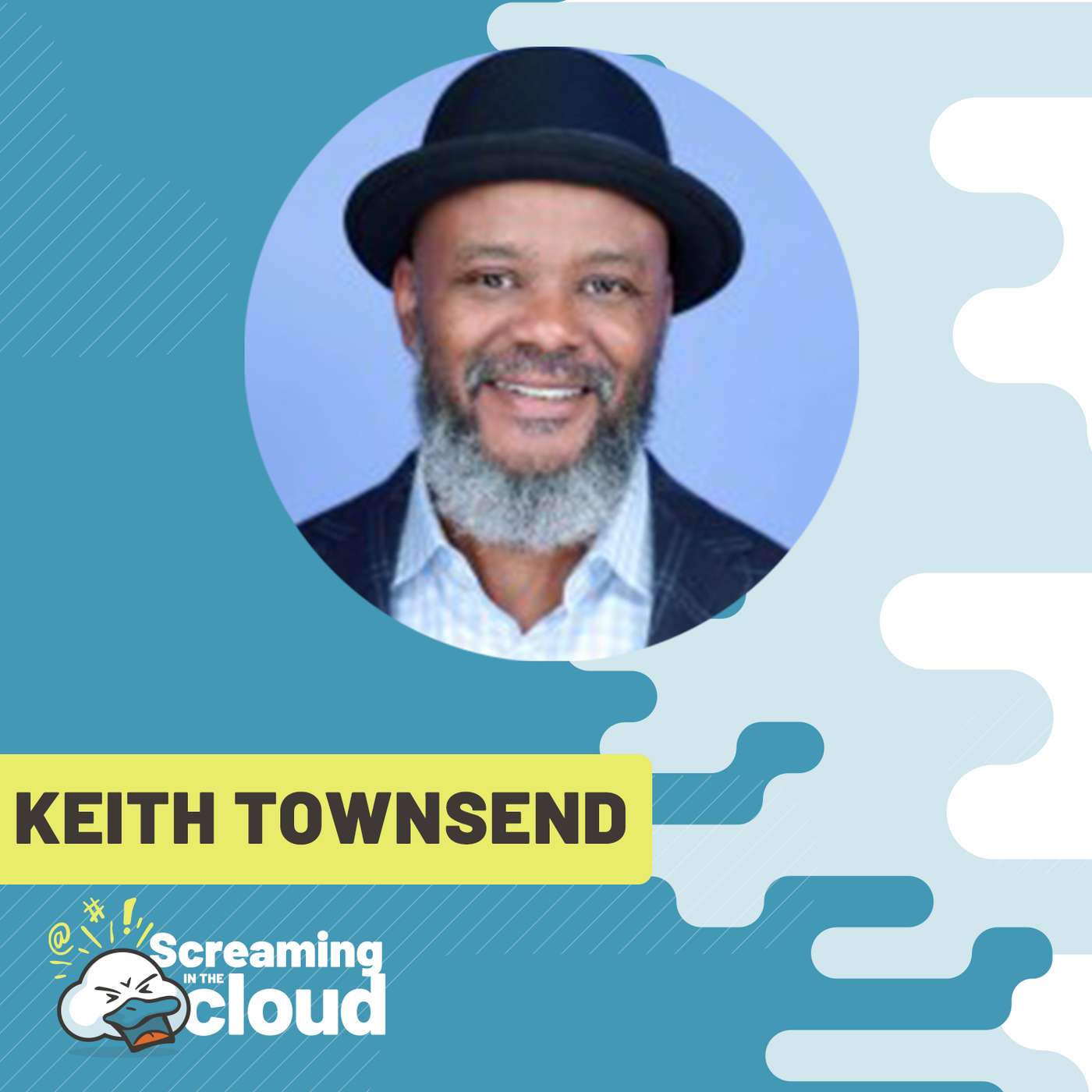
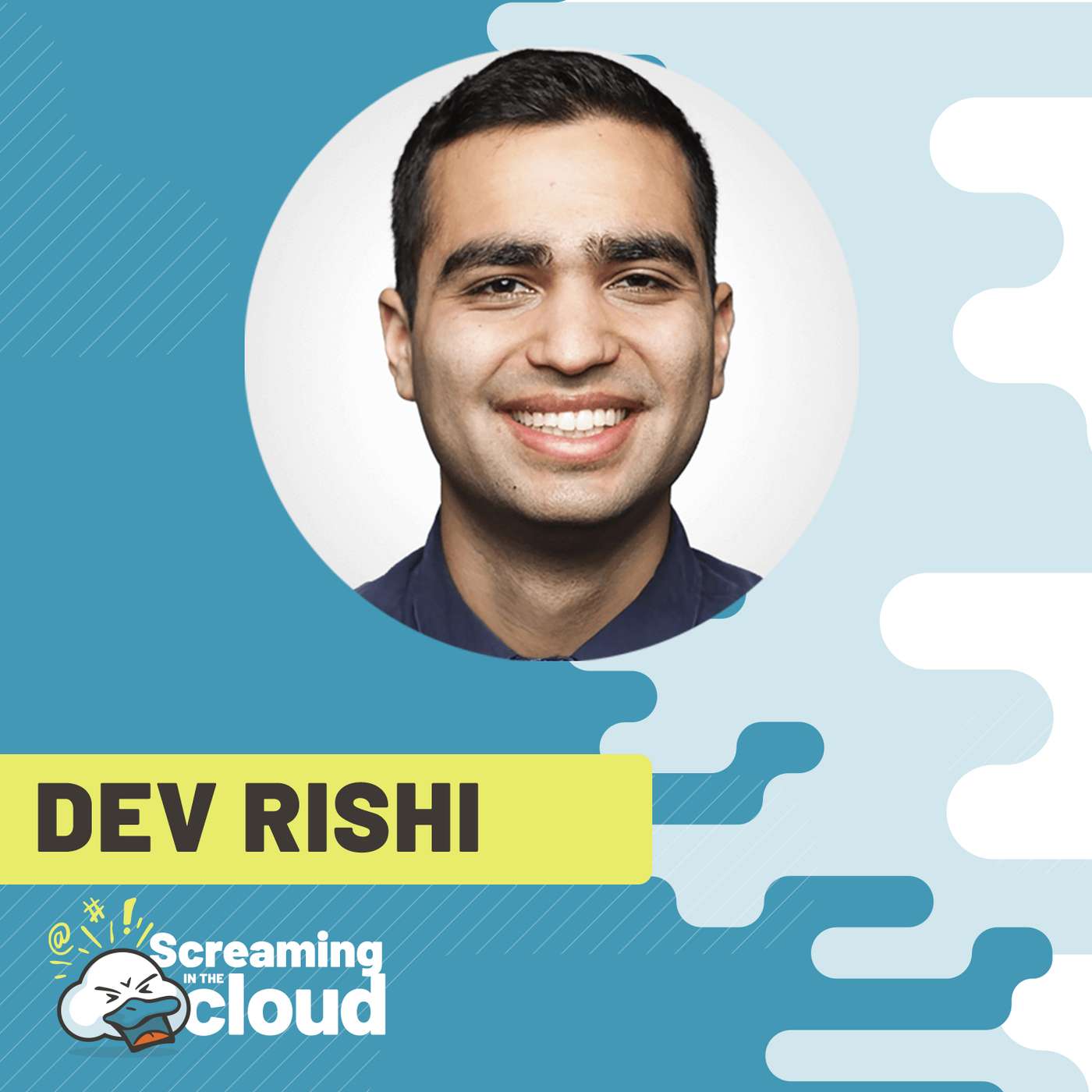
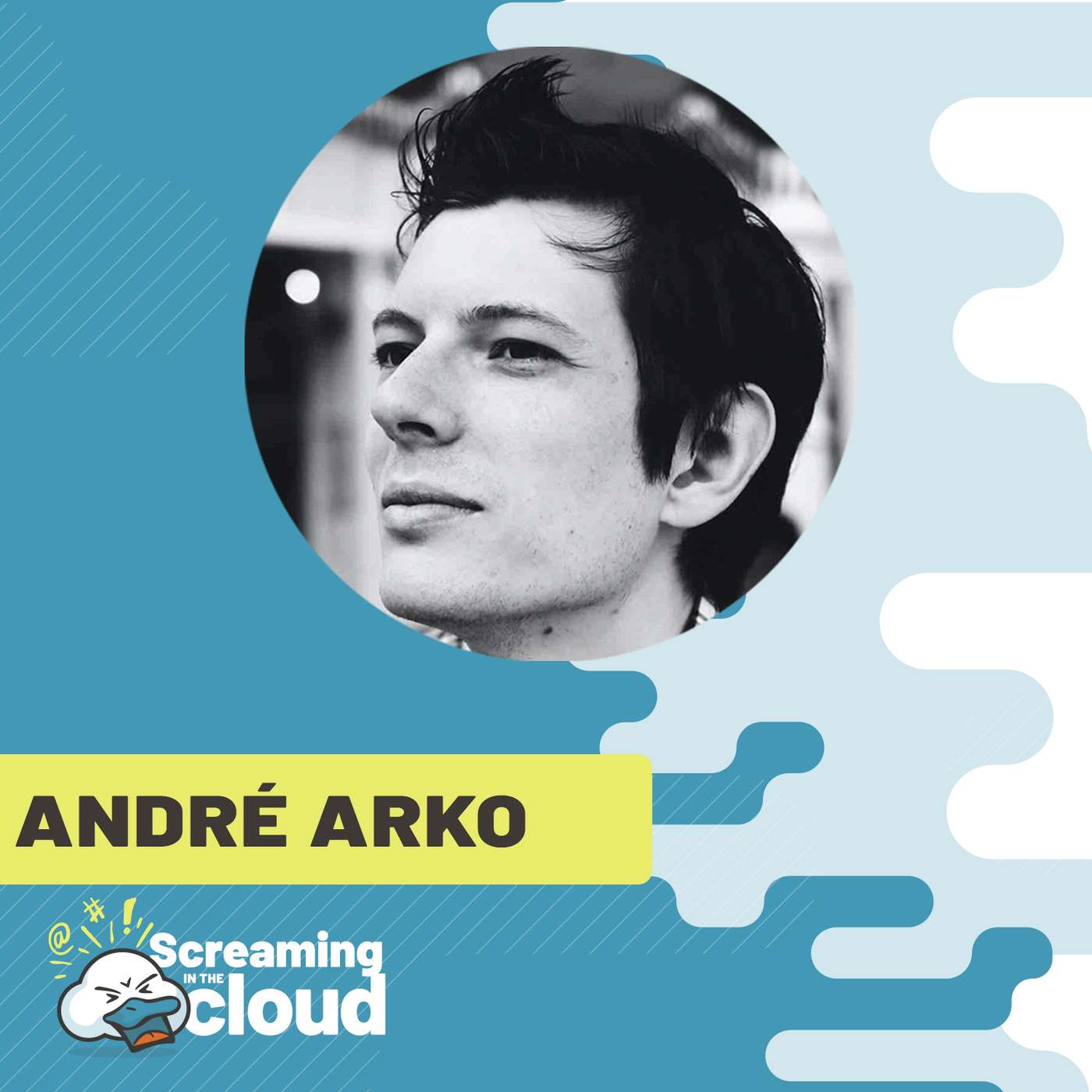
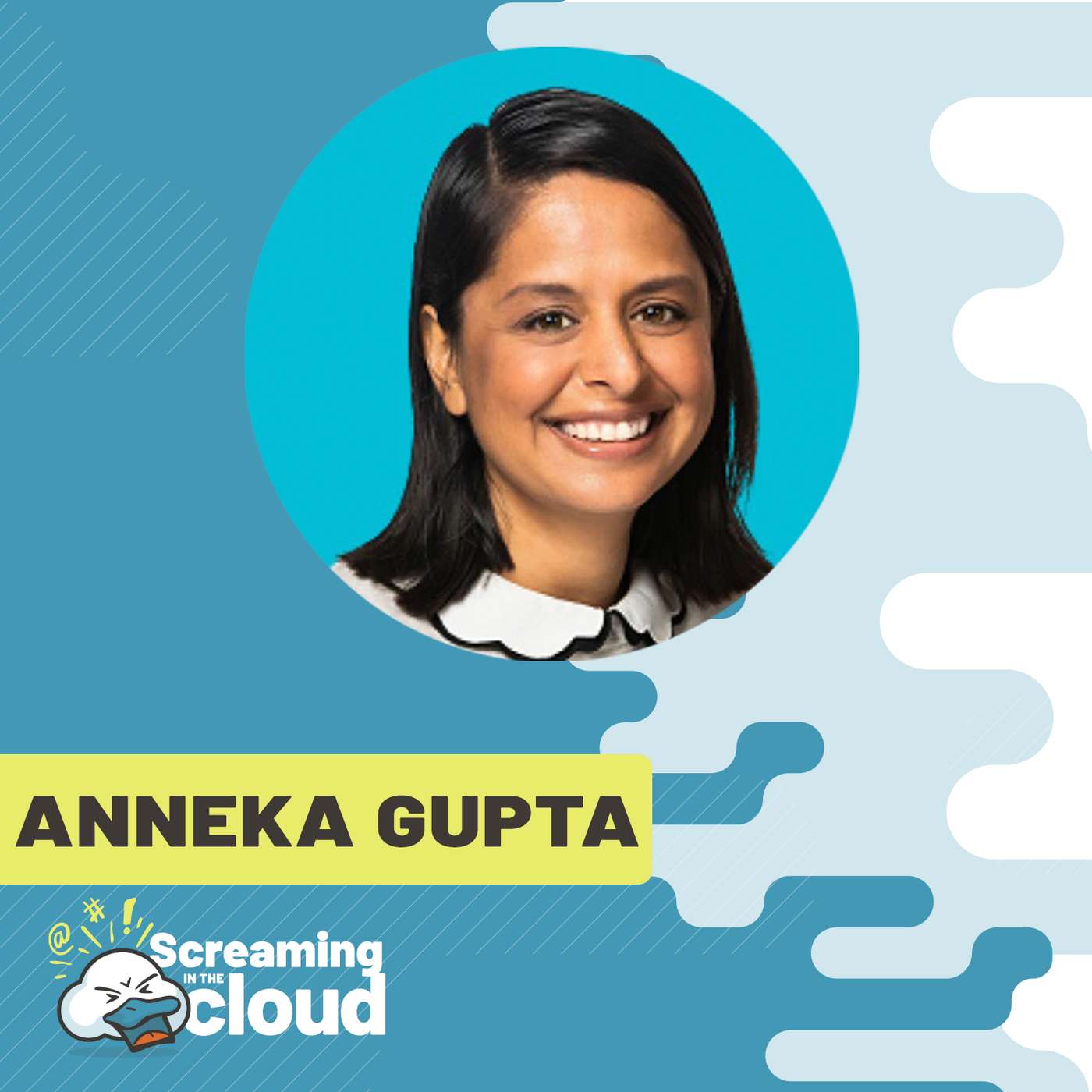
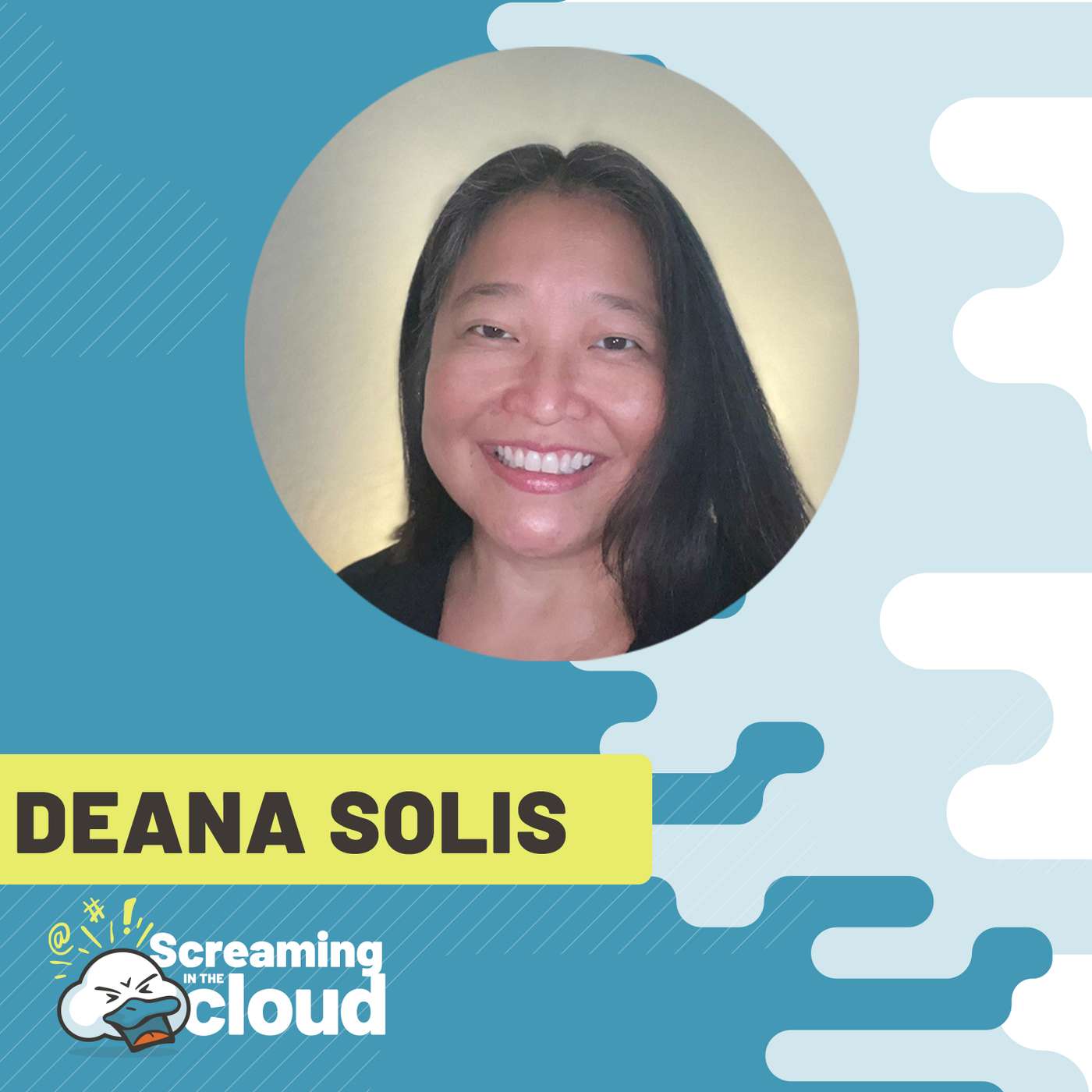
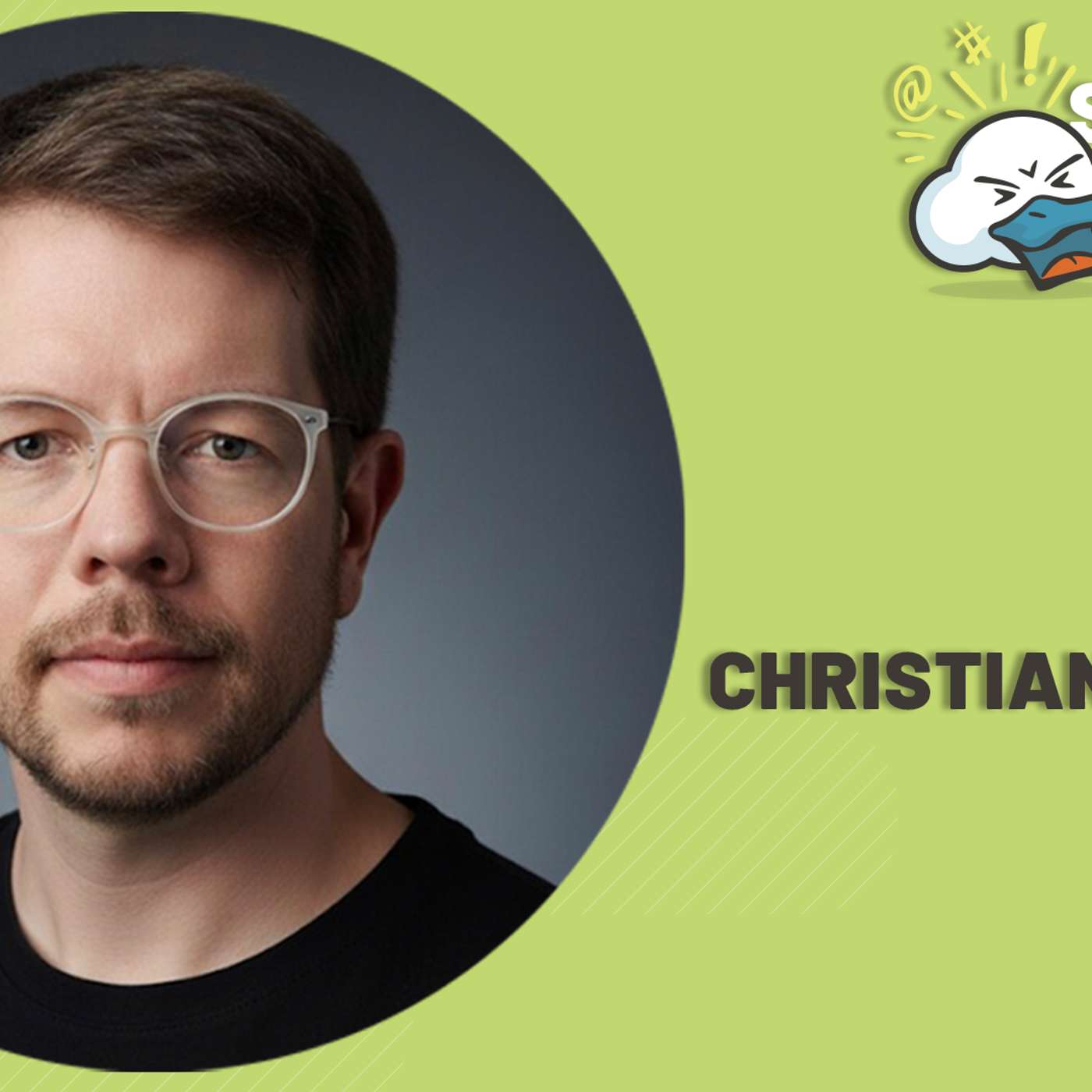
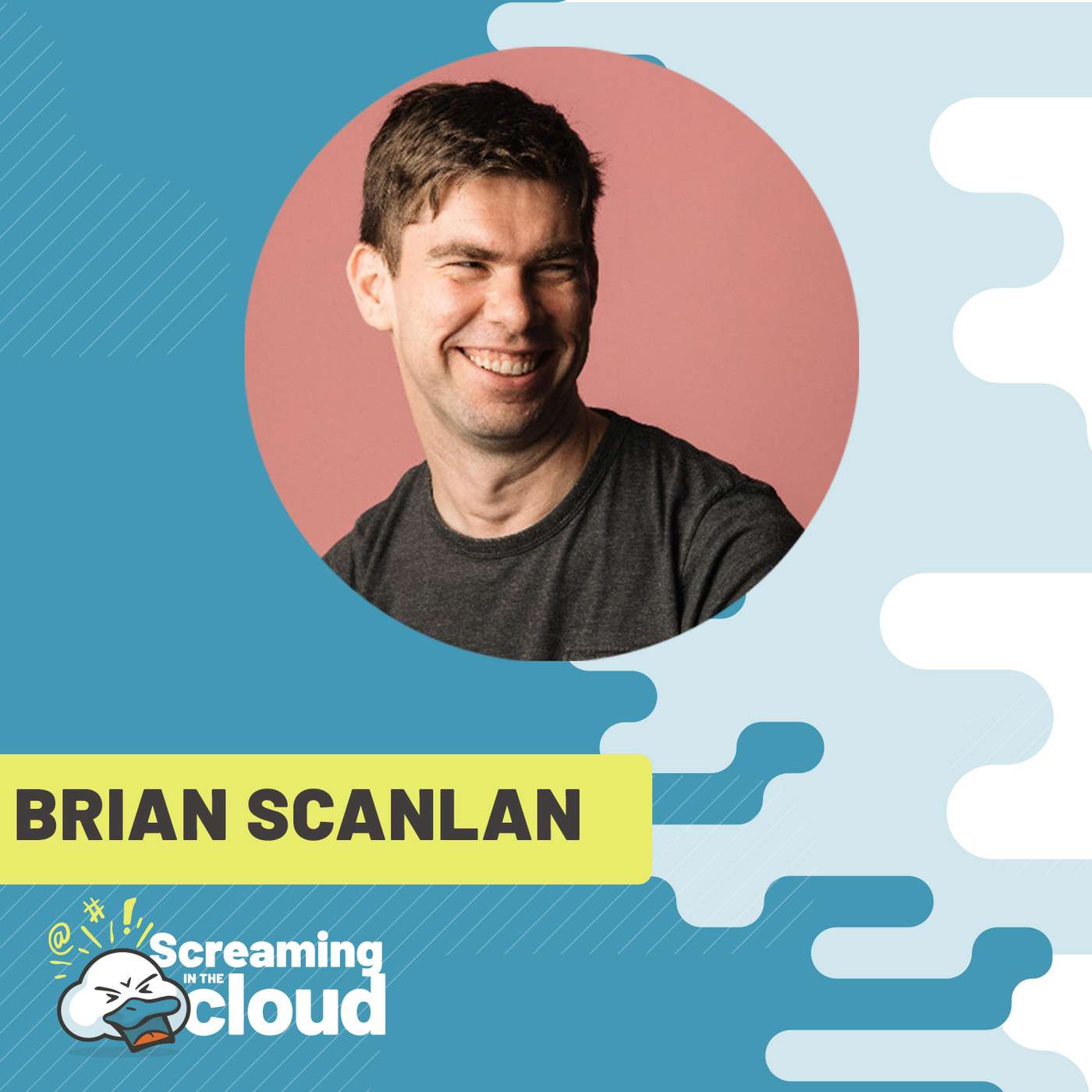
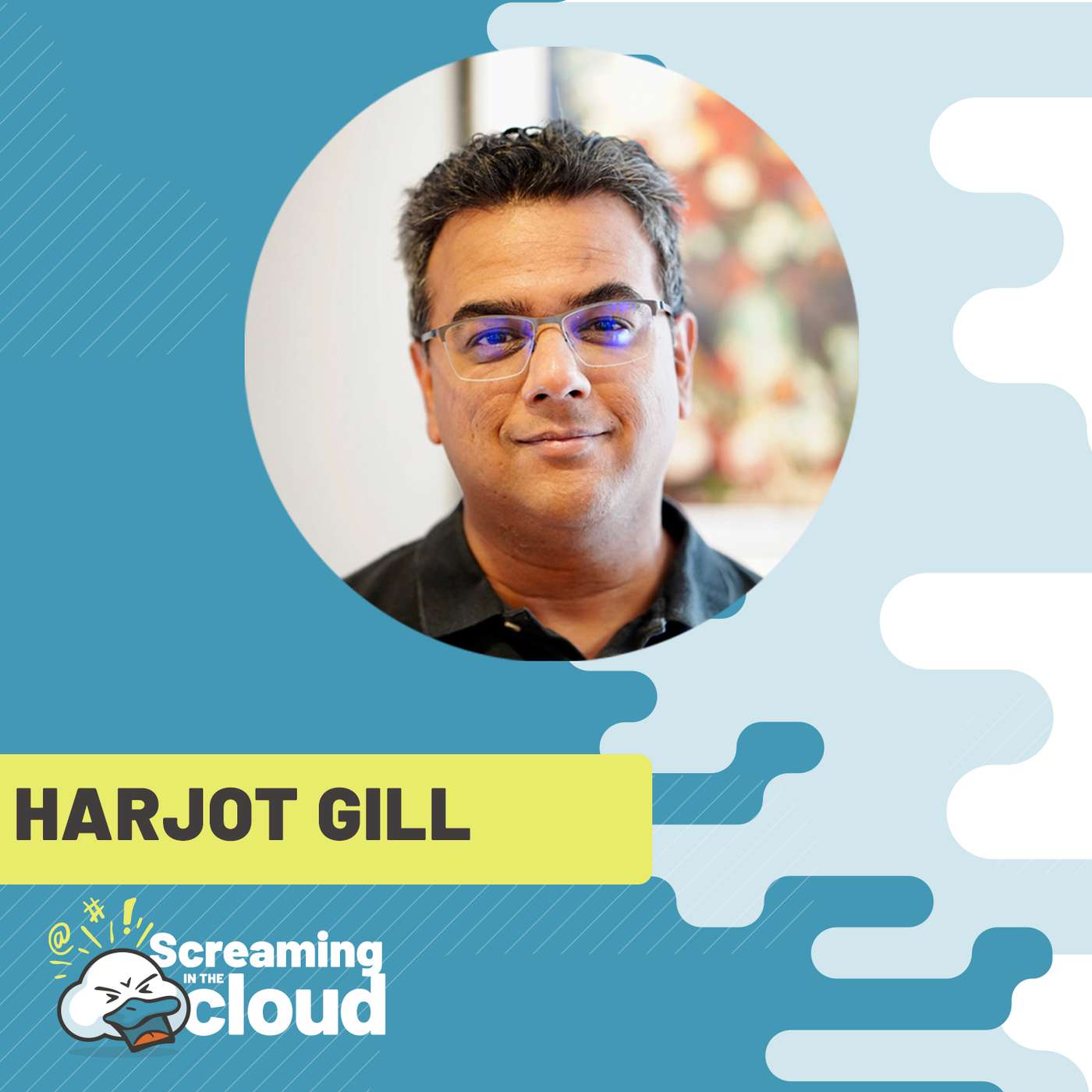

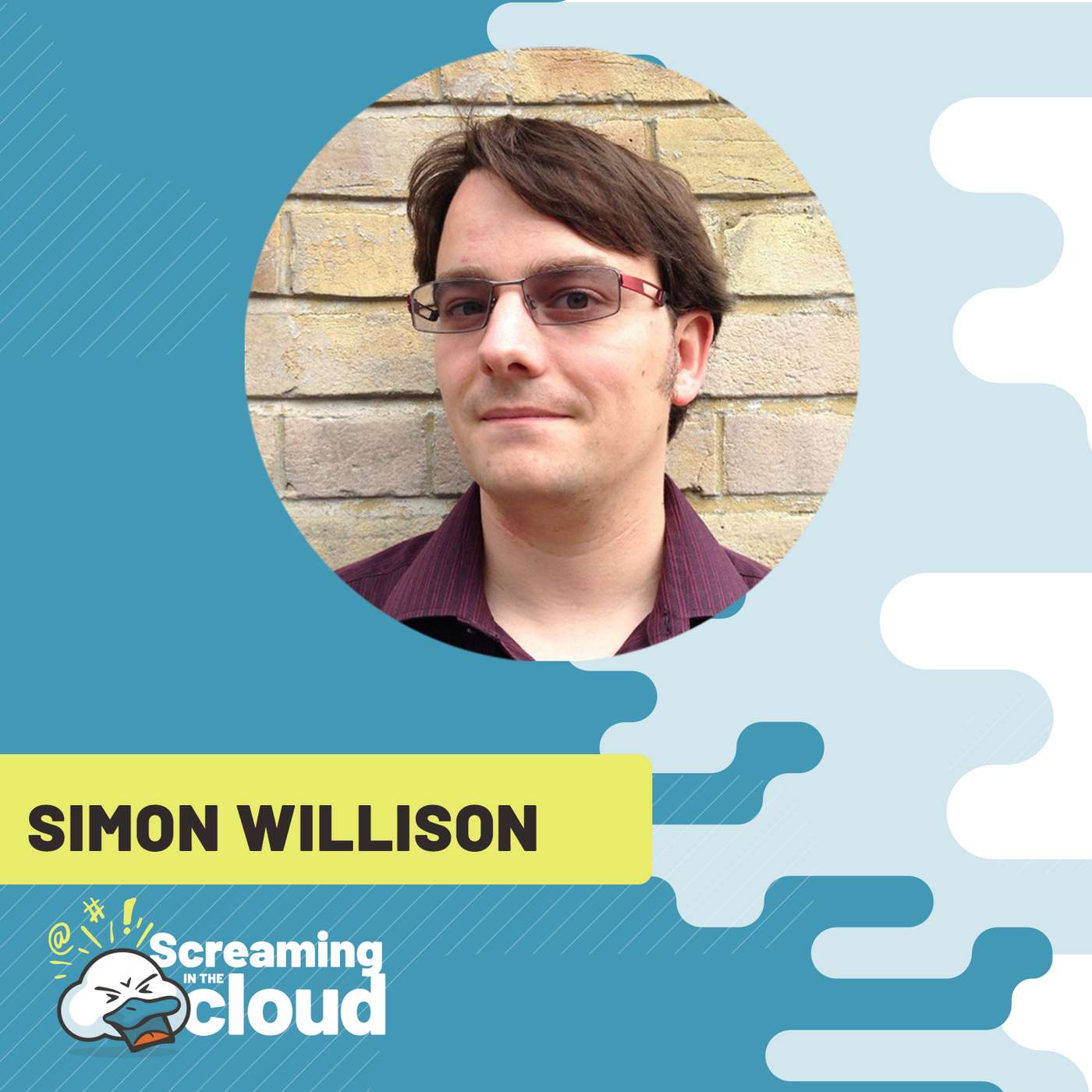
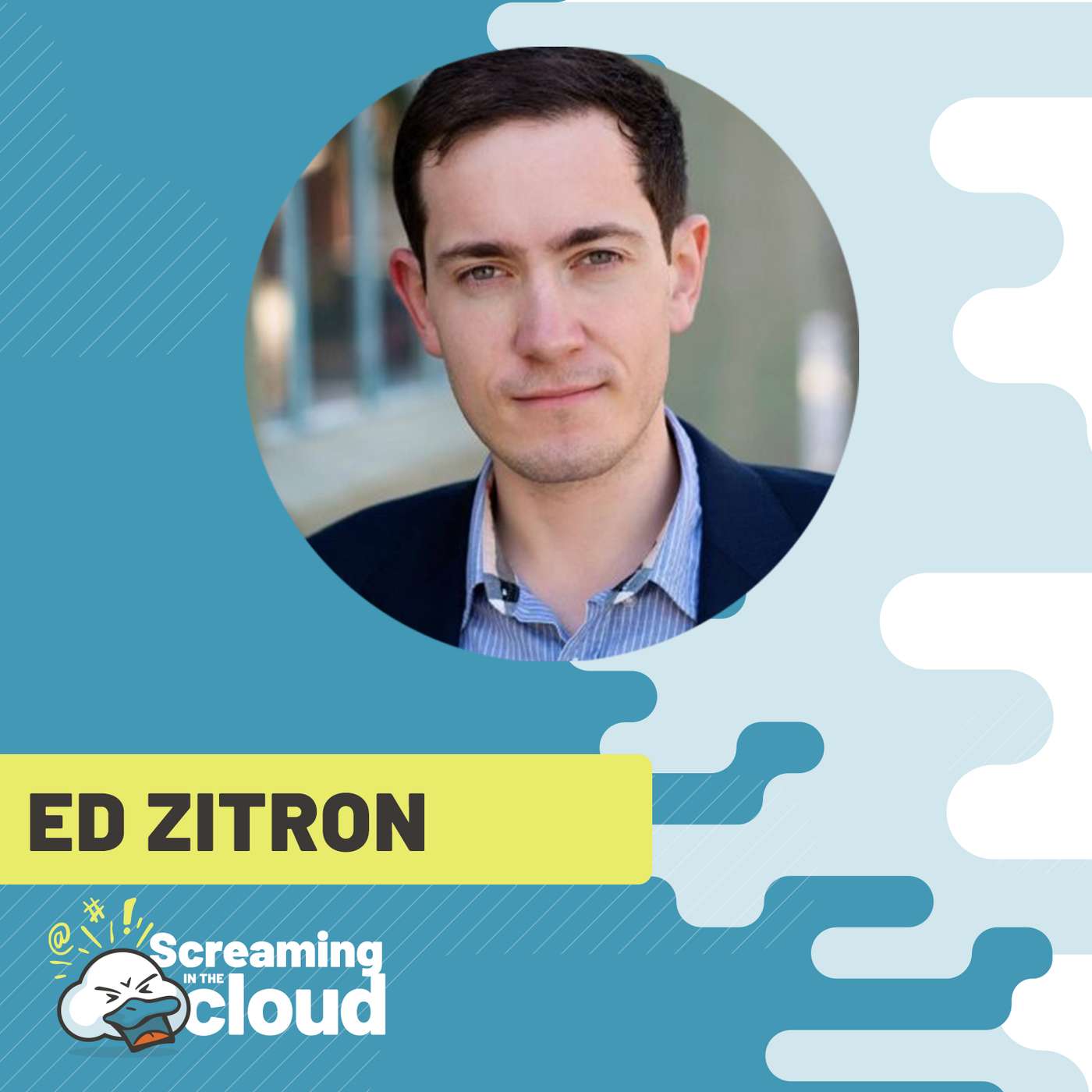
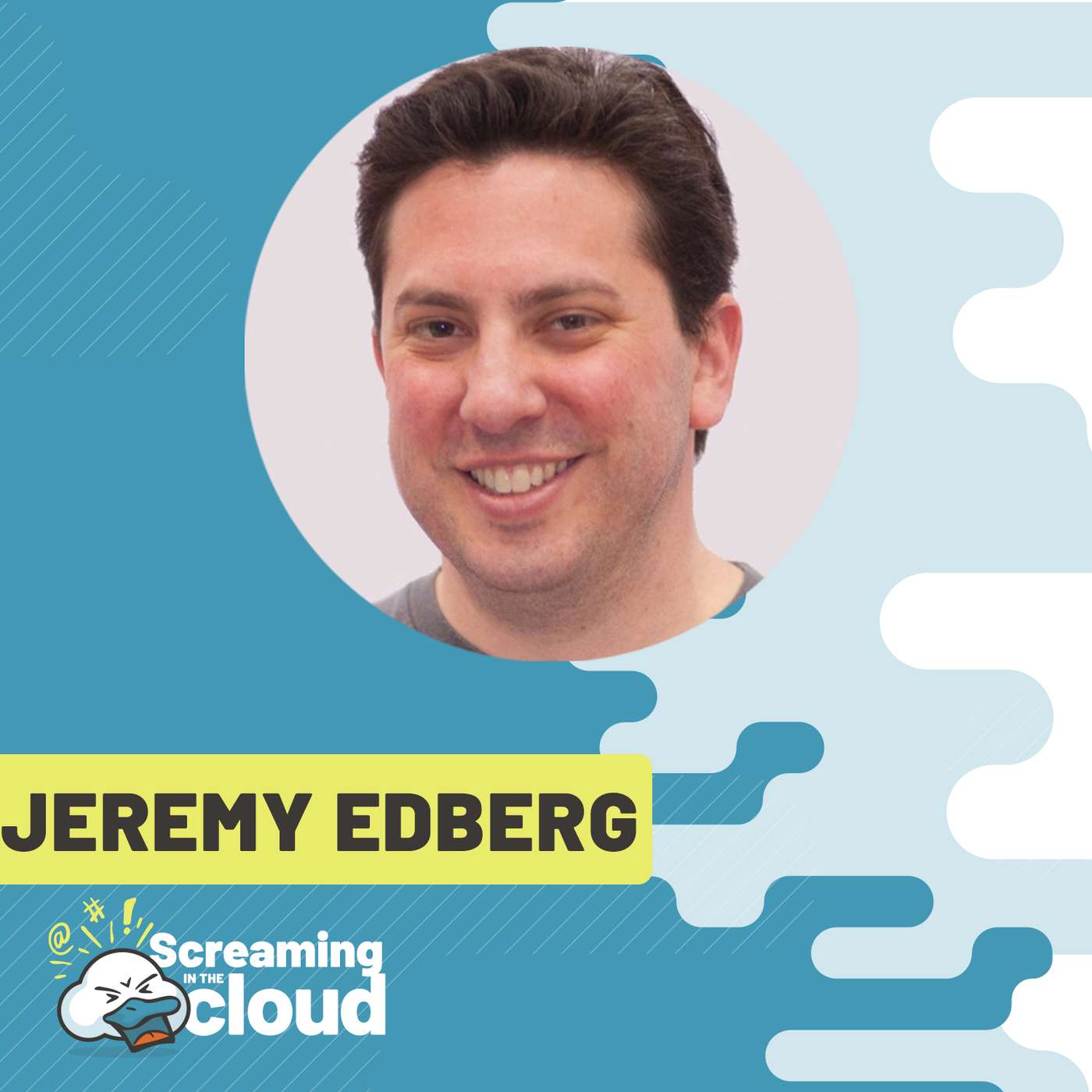
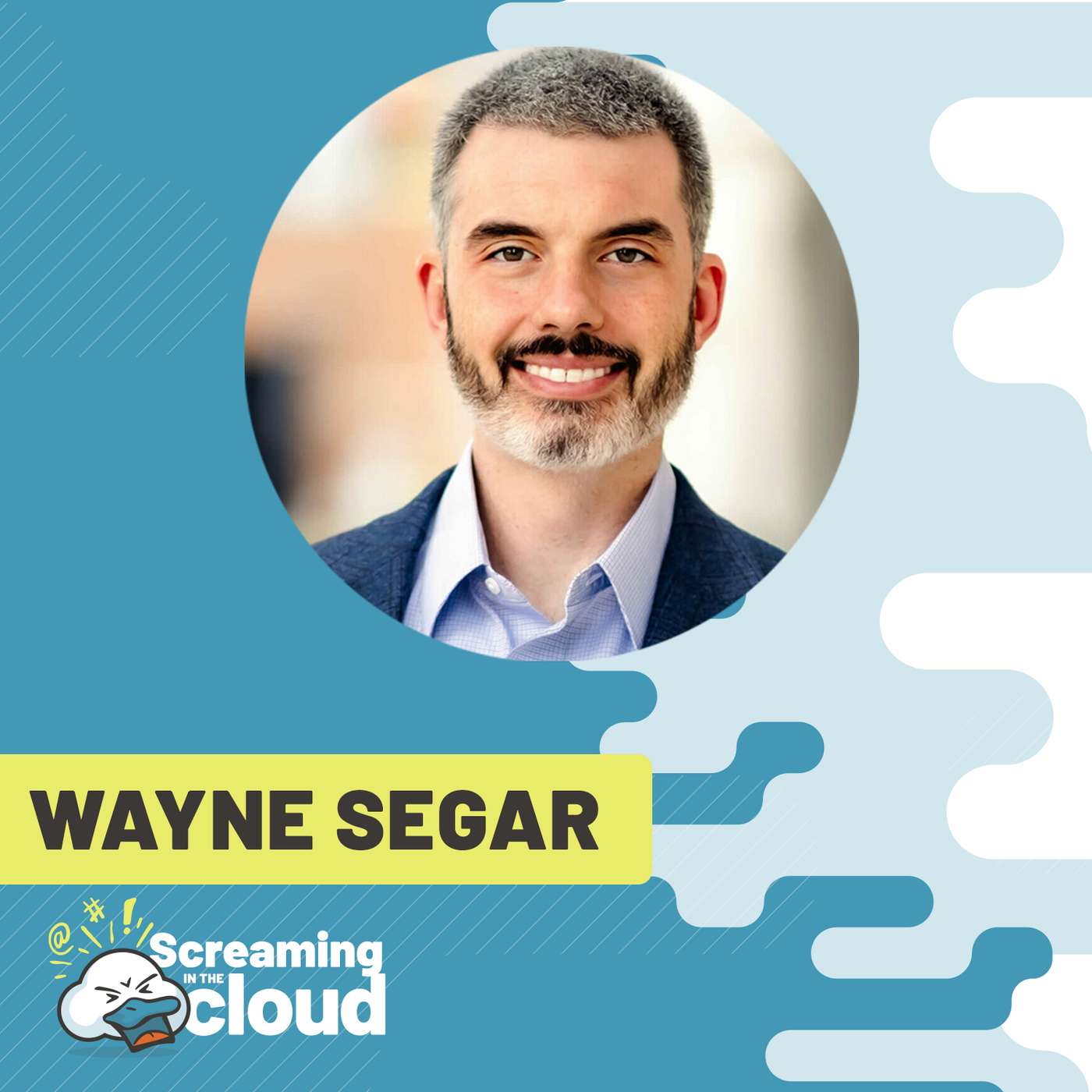
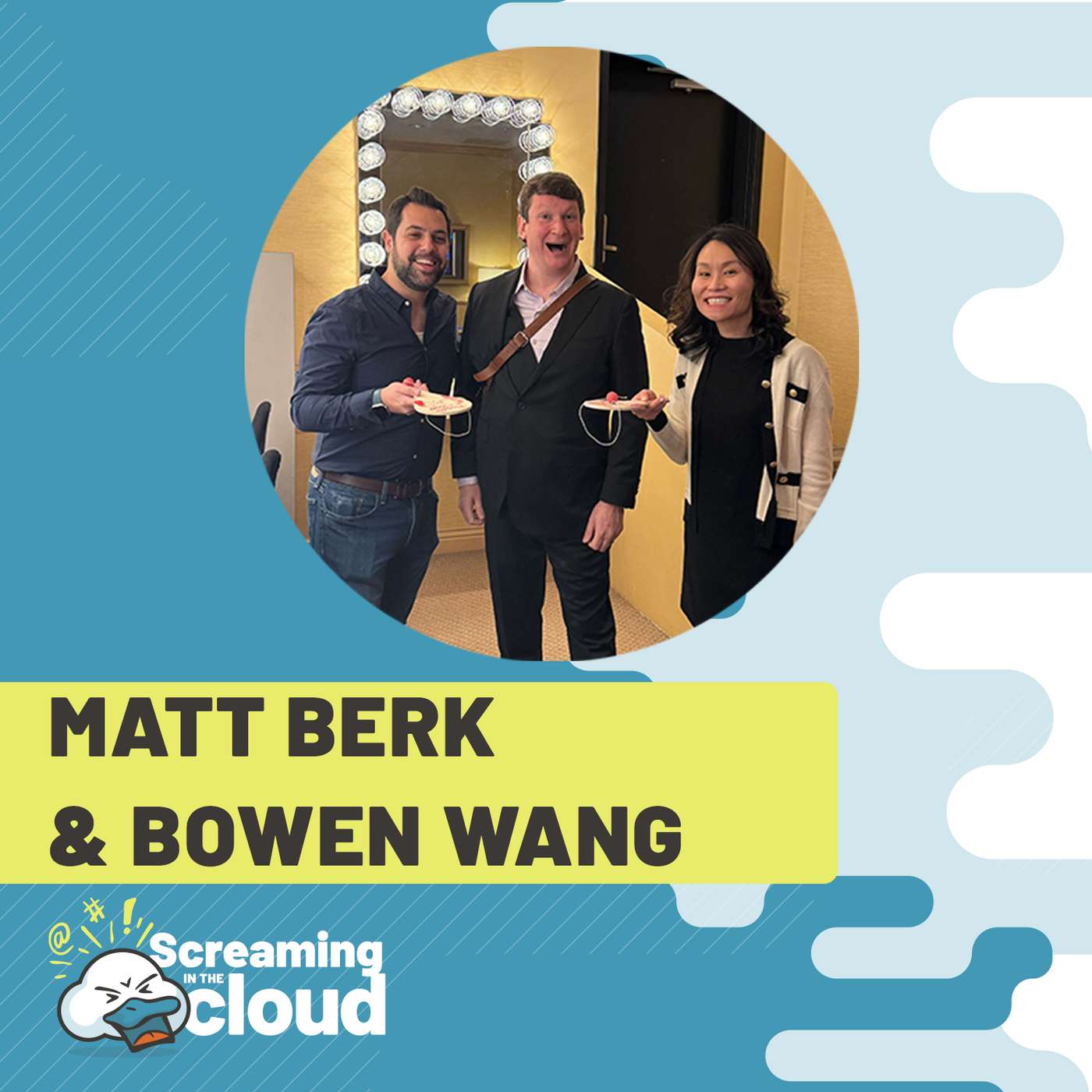
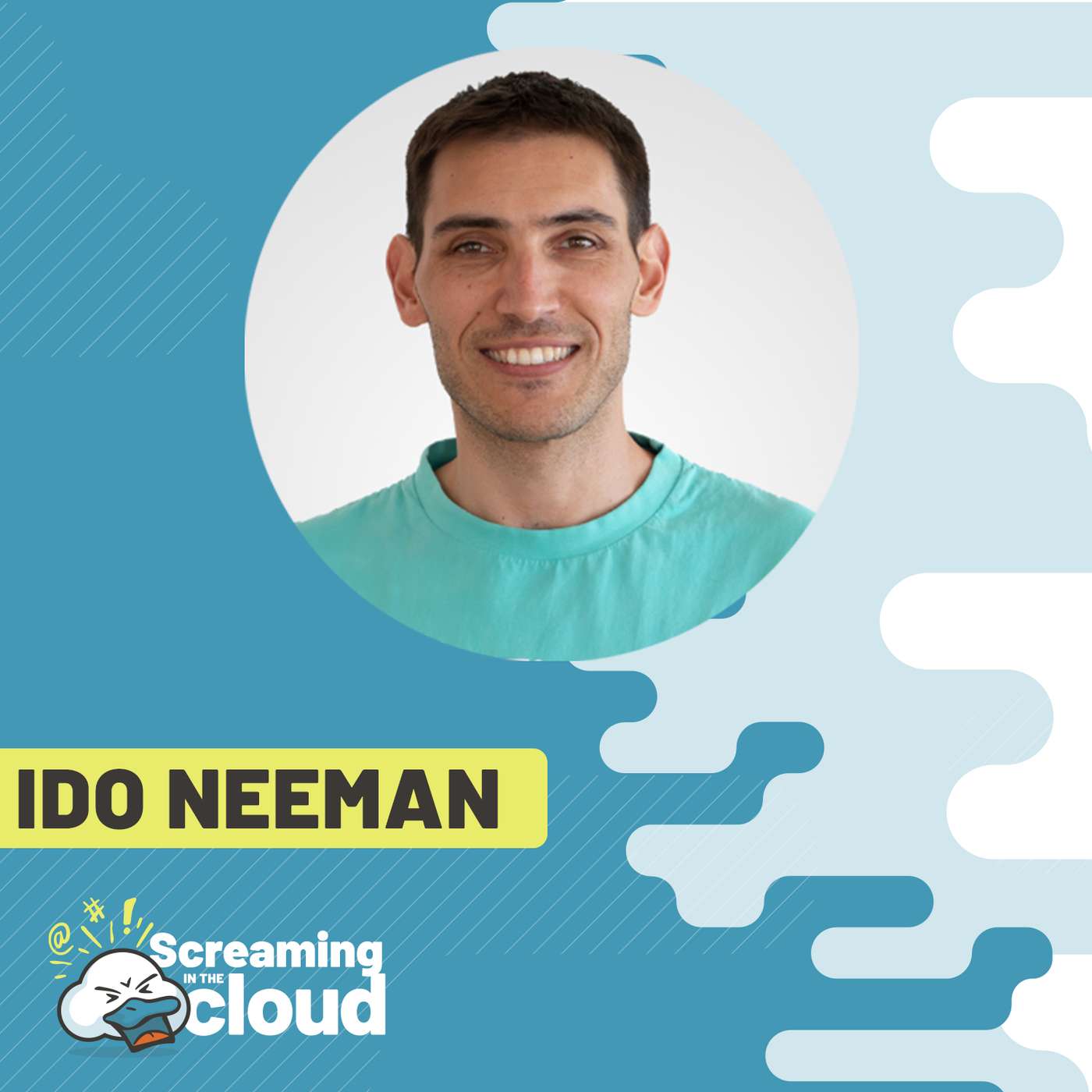
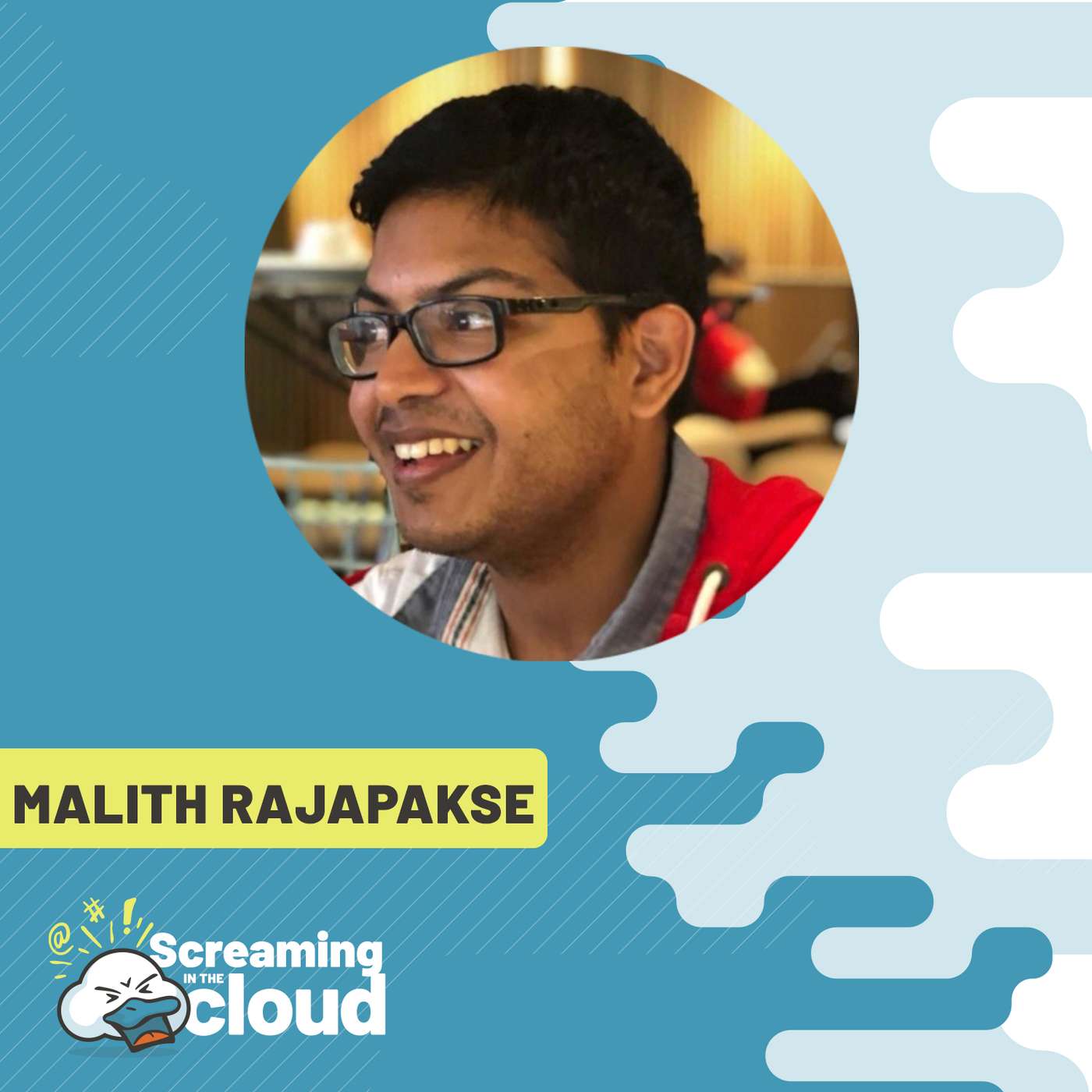

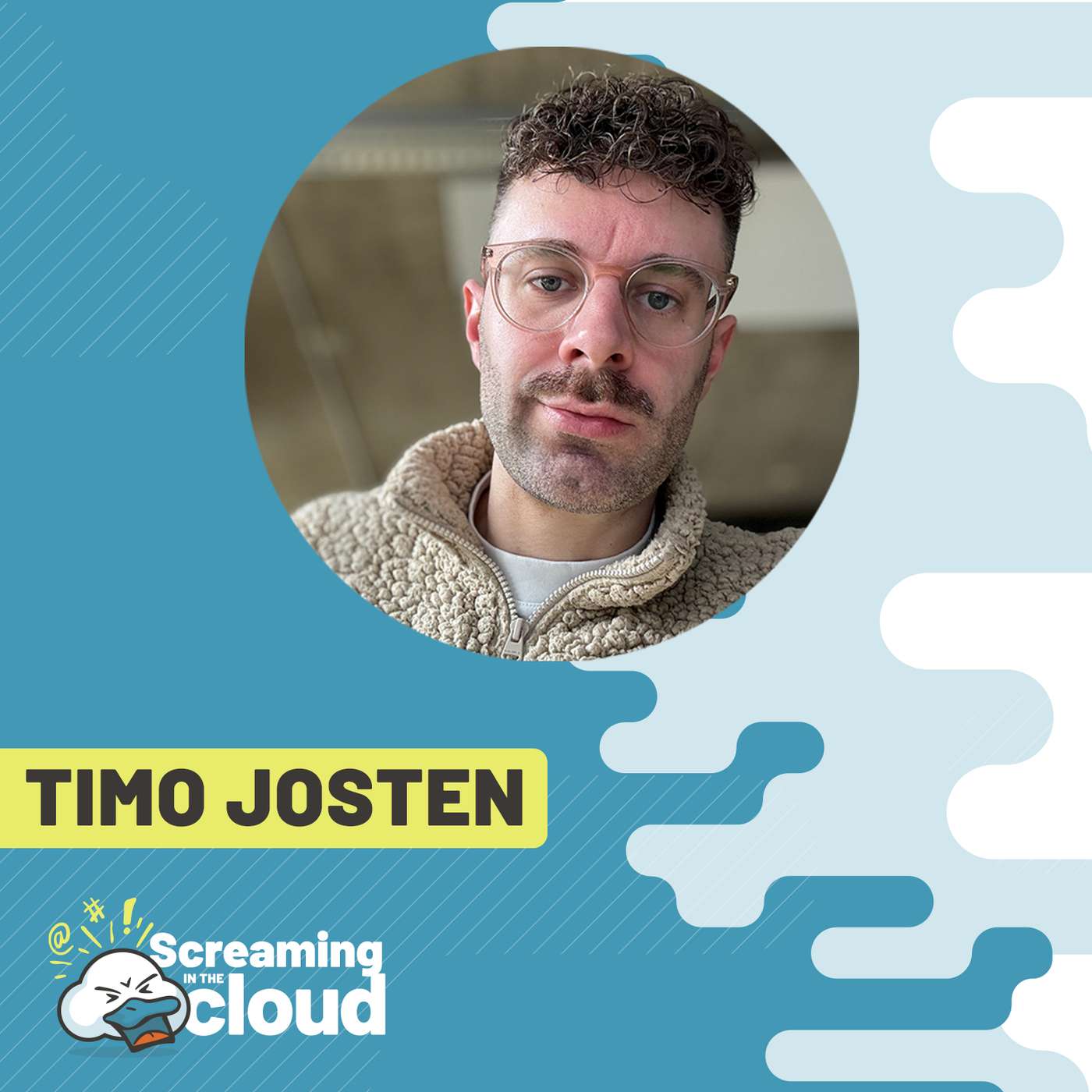
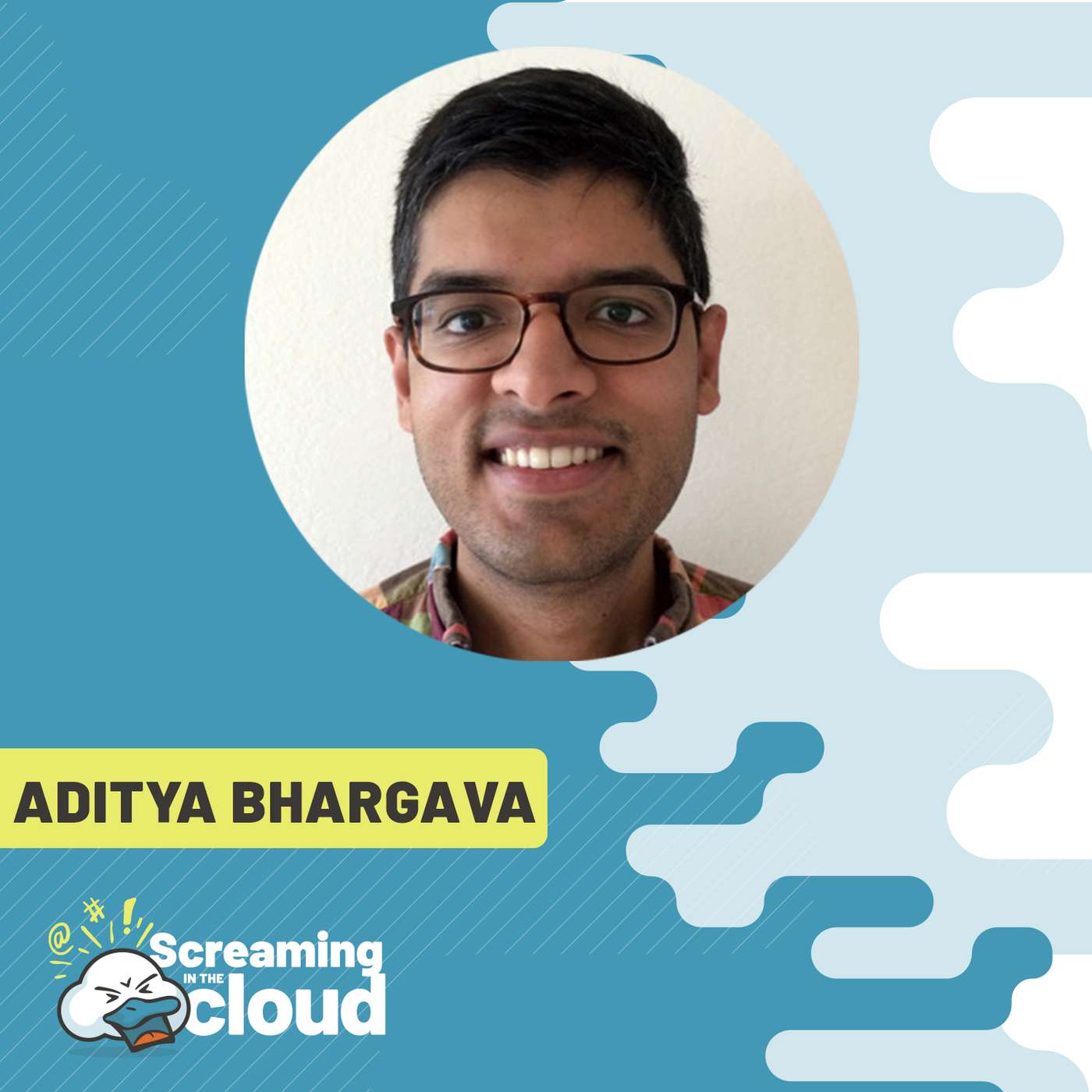



Corey Quinn’s Screaming in the Cloud is a great listen for anyone interested in real-world cloud computing discussions. The mix of humor and deep technical insights about AWS, GCP, and Azure makes it stand out from other tech podcasts. If you enjoy streaming similar content, you might also like exploring https://streamsenpai.fr/senpai-stream-apk-pour-pc/ for related tech and media topics.
I love ya Ed, but jfc you don't need to weirdly shoehorn mentions of a girlfriend into every second of podcast content you participate in. We get it, somebody's dating you. Congrats, brother. There's no need to act like an insecure teenager about it.
el mejor episodio jamás hecho,
it seems the volume changes from high to low every few seconds. please fix?